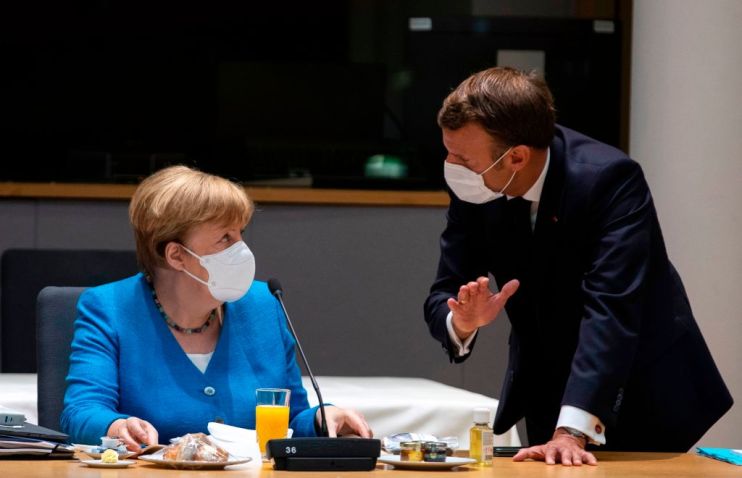Signs of progress in fourth day of EU coronavirus fund talks

EU talks aimed at agreeing the terms of a €750bn coronavirus bailout fund ran into their fourth day but there have been signs of progress.
Germany and France said a framework had been sketched during a summit in Brussels which has been heated at points. The main division is between the countries hardest-hit by the pandemic – like Italy and Spain – and EU members who want to lessen funding.
The “frugal” nations want grants limited, with €390bn reportedly being the latest compromise figure. The EU’s original plan was to disburse €500bn as grants, which need not be paid back.
The so-called frugal four – Sweden, Denmark, Austria and the Netherlands – along with Finland had opposed allowing the grants. Led by Dutch Prime Minister Mark Rutte, they set €375bn as the limit, as well as conditions which include the right to block requests.
There have been testy exchanges with French President Emmanuel Macron reportedly banging his hands on the table in the early hours of this morning.
Arriving to this afternoon’s session he said: “There were very tense moments, moments that will likely still be difficult but on this topic things have moved forward and we must now get into the details of the new proposal.”
German Chancellor Angela Merkel said: “Yesterday night, after long negotiations, we found a way to find a possible agreement. That is a step forward and we are hopeful that we can reach an agreement.”
The Eurozone has been hit particularly badly by the pandemic, with Italy and Spain two of the worst-affected countries in the world.
The European Commission earlier this month predicted the Eurozone economy will shrink by a record 8.7 per cent this year. It said the European Union economy will contract by 8.3 per cent.
In a bid to stimulate the economy, the Commission, France and Germany proposed a bailout fund. Under the proposal, the Commission would raise the funds in the bond markets on behalf of all EU states.